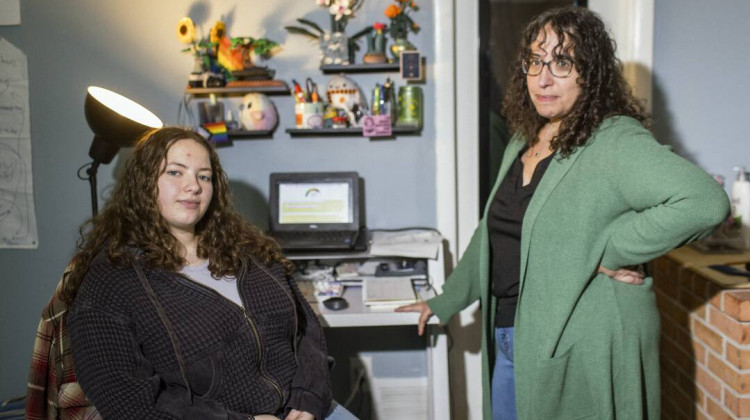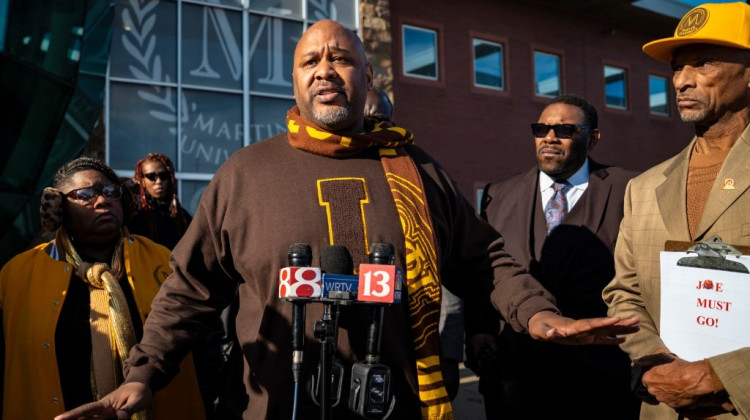
State Rep. Bob Behning, R-Indianapolis, who authored House Bill 1005, speaks at the Statehouse in this 2018 file photo.
WFYI NewsControversial legislation that would create Indiana's first educational savings account program and expand the eligibility of state-funded private school vouchers to families with double the state's median income passed out of the House Tuesday.
The proposal brought strong support in the Republican-led House from lawmakers who framed it as a win for parents to decide how their children are educated. Democrats plead passionately to stop the bill, even at one point calling it “dangerous” and lacking accountability.
Last week, three former elected state superintendents of public education urged defeat of the bill because it would divert funds from traditional public schools.
In the end, the bill passed 61-36. It now goes to the Senate, for further debate.
House Bill 1005 would increase eligibility in the Choice Scholarship Program from low-and-middle-income families to a family of four with an annual income around $145,000. The state’s median family income is nearly $74,000.
It would also create the so-called “education savings account'' program to provide state funding to military families and foster children, who would receive a portion of state-funding to spend on education services instead of enrolling in a public school. Special education students could receive 100% of their funding, depending on the level of disability, to pay for services like tutoring.
The most recent fiscal analysis reports the legislation would cost at least $66 million over the next two years.That includes only one year of funding for the Education Scholarship Account Program, starting in mid-2022.
State Rep. Bob Behning (R-Indianapolis) who authored the House bill and chairs the House Education Committee, said Republicans have long championed letting families choose what type of schools their children attend.
“House Bill 1005 expands the number of families who can now send their children to the school that best meets the needs of their children, and it empowers special education students,” Behning said.
But Rep. Vernon Smith (D-Gary), who has long decried vouchers, described the bill as another piece of Republican-authrored legislation, in the past decade, to divert state money away from traditional public schools and reduce fiscal and academic accountability.
“This bill probably is one of the most dangerous ones, because what I've seen is every time anything has been advocated, like for charter schools, initially, it was supposed to be for the impoverished children, it was supposed to be with the children of color that weren't performing and so forth,” Smith said. “And then, next thing we know, with this bill, we're now expanding it to create opportunities for people who already had their children in private schools…”
Indiana’s Choice Scholarship Program was originally intended to help low-income families and families attending failing schools use state education dollars to attend private school. In 2019 it enrolled 36,707 students at a cost of $172.7 million in scholarships, of which 57 percent of students were White, 22 percent were Hispanic, 12 percent were Black.
The political fight over the 10-year voucher program is not new. In recent years, some lawmakers made failed attempts to alter the the law by not allowing schools to receive state funds if they discriminate against students and staff, such as teachers in a same-sex marraige.
In 2013, a legal challenge to the choice program made its way to Indiana’s Supreme Court, where it upheld the use of public funds to support student tuition at private schools.
Contact WFYI education reporter Eric Weddle at eweddle@wfyi.org or call (317) 614-0470. Follow on Twitter: @ericweddle.
 DONATE
DONATE






 Support WFYI. We can't do it without you.
Support WFYI. We can't do it without you.